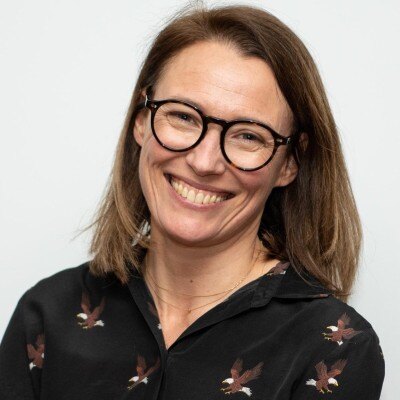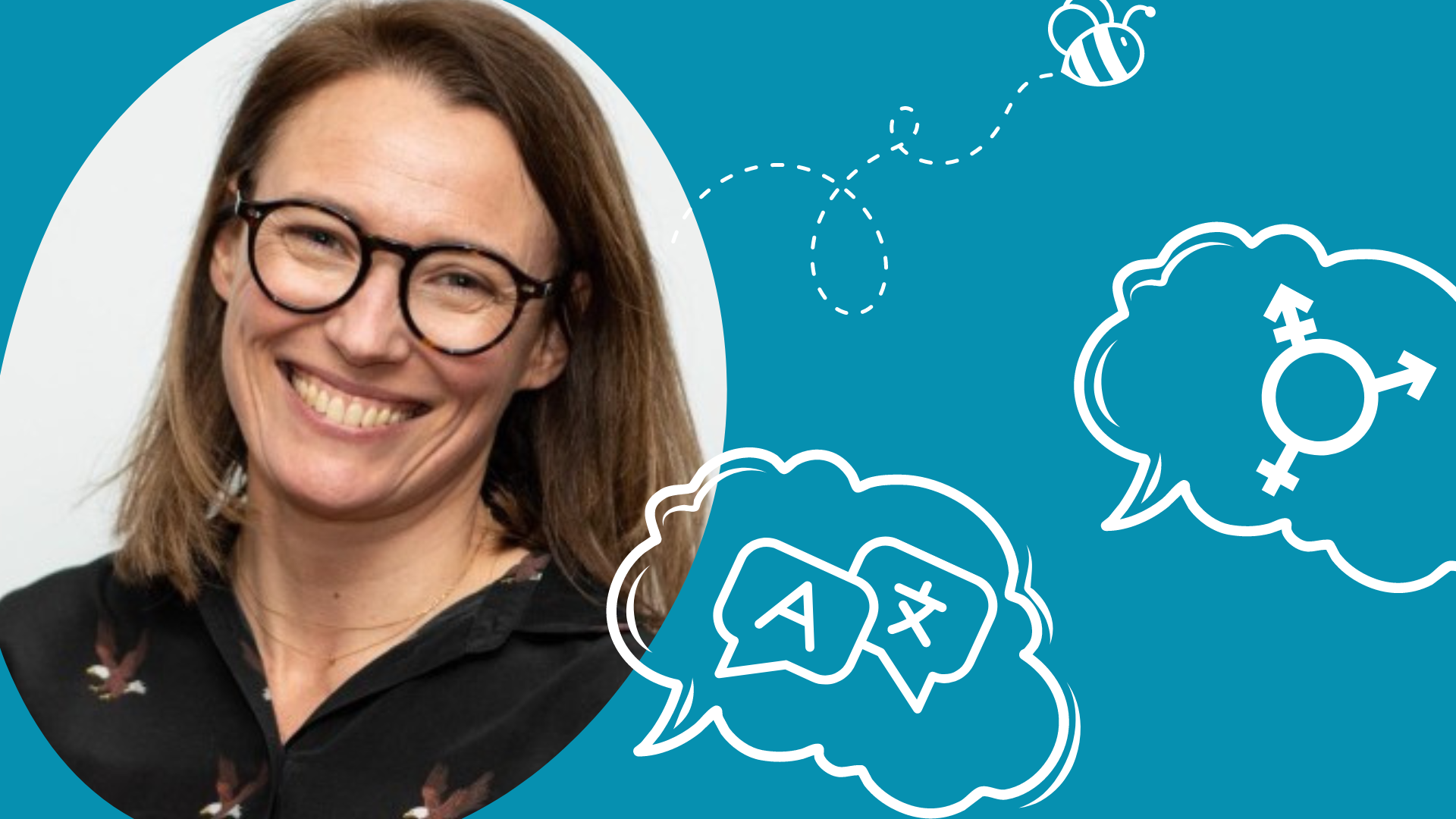A conversation with:


About
At Beekeeper, the commitment to creating an inclusive and diverse workplace is more than just a goal—it's a fundamental part of their identity. As a global company with 240 employees spread across multiple countries and representing more than 30 nationalities, Beekeeper understands that inclusion and diversity is key to innovation and profitability. However, fostering an environment where everyone feels included and valued can be challenging. That’s where Beekeeper’s proactive approach to Diversity and Inclusion (D&I) comes into play.
“At Beekeeper, D&I is not just a checkbox—it’s embedded in everything we do. By listening to our employees and integrating tools like Witty, we’ve created a workplace where everyone feels they belong.”

Louise Willoughby-Petit
Chief People
Officer at Beekeeper
The Challenge: Bridging Cultural Communication Gaps
With employees from various cultural backgrounds, Beekeeper faced the complex question of ensuring effective communication and reducing unconscious biases or stereotypes. Employees also expressed concerns about being misunderstood due to language differences, and there was a need to create a culture where everyone felt comfortable expressing themselves, regardless of their background. Additionally, Beekeeper wanted to ensure that their job postings and internal communications were inclusive, appealing to a diverse range of candidates and employees.
Why is diversity and inclusion important for you at Beekeeper ?
Diversity and inclusion are truly at the core of what we do at Beekeeper, both as a company and through our product. We strongly believe that every employee—whom we fondly call 'bees'—brings something unique to the table. We don't just value these differences; we actively celebrate them. Our commitment is to create a respectful space where everyone feels they can truly thrive without the fear of discrimination or judgment. For us, D&I goes beyond words on paper; it's about building a company culture where every 'bee' feels they belong and can grow both personally and professionally.
“Addressing diversity and inclusion shouldn't be a superficial fix; it needs to be deeply rooted in what makes your company unique. It's essential to put your employees at the heart of the process and actively involve them in shaping initiatives that truly resonate with your organization.”

Louise Willoughby-Petit
Chief People
Officer at Beekeeper
How is the responsibility for diversity and inclusion structured at Beekeeper? Is it overseen by a specific individual or a committee, or is it a collective effort across the company?
At Beekeeper, we’re a relatively small company with 240 employees, so we’ve approached diversity and inclusion a bit differently than larger organizations. In the past, I've seen D&I handled by committees in larger companies, but what I've learned is that it needs to be driven both from the top down and the bottom up, ensuring that these efforts support each other. To make D&I truly effective, it’s crucial that it reflects what our employees care about. That’s why we established a D&I working group that conducts annual surveys to gather employee input. We ask them what they think about our D&I program, what topics interest them, and what they’d like us to focus on in the coming year. As a group, we review these results and decide on our key focus areas for the year. Together with our Culture Manager, I lead this initiative, advocating for it at all levels within the company.
How does Beekeeper measure the effectiveness of its diversity and inclusion efforts, and how do you ensure that these initiatives are making a meaningful impact?
We measure our D&I efforts primarily through our regular engagement surveys, which are conducted every two weeks. These surveys include specific questions about how included our employees feel. Additionally, we have a dedicated D&I survey that is conducted less frequently. This survey allows us to gather more targeted feedback on our D&I initiatives. By tracking these results, we can see how we're doing over time and even compare our progress against benchmark companies in our industry or others. Overall, I'm pleased with our progress, especially in the last three years, as we've developed annual programs based on employee feedback that have had a significant positive impact.
“We're incredibly proud that our D&I program has become an integral part of our culture. It's something that our employees genuinely enjoy and associate with positive experiences and continuous learning.”

Louise Willoughby-Petit
Chief People
Officer at Beekeeper
What are the key focus areas Beekeeper has decided to prioritize in your D&I efforts this year, and how did you implement these initiatives?
We’ve been focusing on four key areas in our D&I efforts this year, each designed to create deeper awareness and meaningful discussions within the company.
- First, we prioritized mental health.
- Second, we followed by mindful communication.
- Third, we introduced last year an initiative called 'Celebrating Our Roots,' which focuses on honoring the diverse cultures of our employees, who represent over 30 nationalities across our offices in four countries.
- Lastly, it will be the first time we focus on unconscious bias.
These activities are designed to be engaging and fun, encouraging participation while also tackling important issues. For example, we held interviews where employees shared their cultural backgrounds and personal stories, and we organized events like a diversity soirée and multicultural karaoke, which sparked fascinating conversations and brought people closer together.
How does Witty help Beekeeper address communication challenges across different nationalities and cultures within the company?
Witty plays a role in helping us navigate communication challenges that arise from our diverse workforce. With so many different nationalities represented at Beekeeper, even when we all speak the same language, misunderstandings can happen. Our employees brought this to our attention, expressing concerns about feeling misunderstood due to challenges with lanugage nuances and cultural norms. In response, we conducted a survey to gather examples of these communication struggles. Witty helps us address these issues by providing real-time feedback and guidance, ensuring our communication is clear, inclusive, and considerate of our diverse backgrounds.
Witty also serves as a continuous learning tool, helping us to improve our communication skills as we go.
“We chose Witty because we wanted to ensure our communication was inclusive and considerate. Often, unintentional language can cause offense, and this was something our employees highlighted in surveys. Witty helps us to learn about bias and communicate in a way that makes everyone feel included and respected.”

Louise Willoughby-Petit
Chief People
Officer at Beekeeper
How is Witty helping Beekeeper with Bias Awareness?
When communicating, it’s easy to unintentionally offend someone without realizing it. Witty provides real-time notifications and feedback, offering constant signals that help us stay aware of potential biases.
That is definitely helping.
“With Witty we make sure that in talent acquisition we are not unintentionally excluding any potential talent, but are able to attract everyone to our company.”

Louise Willoughby-Petit
Chief People
Officer at Beekeeper
Takeaways
Beekeeper’s journey to fostering a more inclusive
workplace offers valuable lessons for other
companies.
To address these challenges,
Beekeeper took several strategic steps:
-
Establishing a D&I Working Group:
Beekeeper formed a D&I working group, led by Chief Product Officer Louise Willoughby-Petit, to steer the company's inclusion efforts. The group, representing different parts of the company, used employee feedback from annual D&I surveys to set the focus for their initiatives each year.
-
Focusing on Key Areas:
For 2024, Beekeeper zeroed in on four main areas: Mental Health, Mindful Communication, Celebrating Cultural Roots, and Unconscious Bias. Each area was addressed through targeted activities, workshops, and discussions designed to create awareness and promote inclusivity.
-
Adopting Witty:
Beekeeper integrated Witty, a tool that helps identify and reduce unconscious bias in written communication, into their daily operations. The tool was used not only for creating inclusive job postings but also as a learning tool for our People team, helping them communicate more effectively and inclusively across different cultural and linguistic backgrounds.



